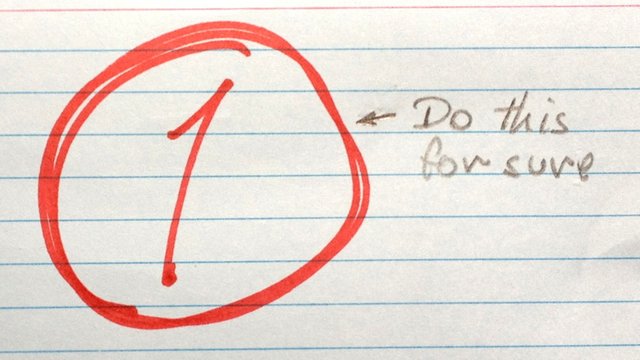Hi Steemit World!
My thoughts about the movie Secret and about materialization of your thoughts :)
Don't judge so hard, it's just an opinion :)
Sorry for poor english as well :) but it's still readable :)
First of all, watch the movie "Secret" fellas :)

WARNING!
Faith in the materiality of thoughts can turn you into a loser.
Do you know about this?
You kill your motivation if you represent the moment of achieving the goal and experience positive emotions from getting what you want. Surprise-surprise!
Once the film "The Secret" produced a lot of harmful myths, which make it difficult to achieve the set goals. It's time to deal with them! Be prepared to receive insights on the topic of success and read on.
Foreword.

What thoughts do you send into the universe, then it will manifest in your life. Law of Attraction and materiality of thoughts. Have you heard of this? I'm sure yes.
The film "The Secret" and "Down the Rabbit Hole", the book "The Law of Attraction" and "Transurfing the Reality" inspired people to represent the desired reality in order for it to be embodied.
It's time to take stock and draw conclusions.
There was a huge number of people on expensive cars? It seems not. Have your friends who visualized become successful and rich? All achieved ambitious goals, attracted love and happiness into their lives? Not everyone.
But why? After all, positive thoughts should have materialized! There are several classical excuses:
- In addition to positive thoughts, they broadcast doubts;
- Incorrectly visualized;
- Few visualized, because there was not enough perseverance and patience.
The explanations look plausible, but do not reveal the real cause of the failure, which is hidden in the bowels of our brain. But let's look at it in order.

What is the basis for the statement about the materiality of thoughts?
To substantiate the materiality of thoughts, an experiment is often led from quantum physics, where, in the absence of an observer, particles manifest the nature of the wave, and behave as if they were ordinary particles.
If the behavior of particles depends on the observer, then all people influence the world around them. Yes it's true. Then we are led to the conclusion that thoughts are material and everything that we think about will sooner or later manifest itself in our reality.
Is that makes sense?
In fact, the experiment shows that the very fact of observation, rather than thought, is important. Whatever the thoughts, the result is always one. Moreover, the observer in the experiment is not a person, but a sensor that does not have any thoughts or emotions.
The conclusion about the materiality of thoughts can be made only under the condition that the behavior of particles depends on the thoughts and desires of the observer. But we know that this does not happen.
Accordingly, there is no connection between the assertion about the materiality of thoughts and the famous experiment from quantum physics.


Are thoughts really material?
Let's drop our beliefs and turn to the facts. It's better to judge by the fruits, is not it?
Let me ask. Did you dream of being the strongest or the most beautiful in your childhood? Did you have any fantasies about wealth, money and opportunities? Surely there were.
I'm sure the weakest boys in the class fantasized about power, revenge and respect. And ugly girls dreamed of being slim and attractive. Children tend to dream and dream, it's natural.
Now look at the fruits of visualization.
If the Law of Attraction works, in schools you will not find weak boys and ugly girls. All will be well dressed, have an expensive phone and come to school on the chic cars.
Everyone will be outstanding: someone releases another album, someone writes interesting novels, someone wins at beauty contests. All students must comply with their ideas about the ideal!
But this is not so. Schoolchildren dream a lot, presenting themselves in the desired reality, but their result clearly speaks not in favor of the Law of Attraction.
And what about fears?
If our worst expectations were fulfilled, you would not be reading this article now. Many would have been stabbed long ago by a maniac in the doorway, others would have burned down an apartment. And in general, the Earth would have been destroyed by a global catastrophe for a long time.
But this does not happen, right? Most of our fears never materialized. Does this speak for the Law of Attraction? Obviously not.

Maybe the reason is in contradictory thoughts?
Perhaps you will say that thoughts were not embodied because of the contradictory nature of the message to the universe. Children dreamed of being the most-most, but doubted it. The universe received two mutually exclusive signals.
Not a bad counter argument, if not for one "but". Take people with phobias. For example, a person is sure that neighbors want to poison him with gas, and considers fools all those who doubt it.
The message to the Universe is unequivocal: sooner or later I will be poisoned. But, what in fact? In fact, such people live for years and even decades. A single-valued message to the universe does not work.
And what about the people who believe in the materiality of thoughts? They know that you can not doubt. Do they get what they want? Not always. Often they live in poor conditions and earn little, despite active visualization.
What does it say? In my opinion, comments are superfluous.

Visualization of success kills motivation
What is the main advice of the film "The Secret"? Imagine yourself in the moment of achieving the goal, experience emotions, smell and touch, maximally immersing yourself in the picture to attract success.
It sounds good, but it's the most harmful advice to achieve the goals that you have ever received!
In fact, such visualization weakens your ambitions and reduces your desire to act. Motivation becomes sluggish, like a rag, energy becomes less, the chances of success fall.
I am now talking about goals that depend only on you. The car you still can give, but the English or the ideal body is not. But why does the motivation fall? It's all in the brain.
Drawing a rainbow picture, you give the subconscious signal: "Everything is good, the goal is achieved, rejoice and have fun." The brain does not see the difference between an imaginary picture and a real one. From his point of view, there is no sense in allocating energy to actions when the goal has already been "achieved." And this is logical.
Guess, in which case it is impossible to open the door? When it's open! In what case is it impossible to achieve the goal? When it is reached. And if you could convince the brain that you already have what you want, then do not rely on motivation.

What do scientists say about the visualization of the moment of success?
German social psychology professors Heather Kappes and Gabriel Oettingen have been studying the influence of positive fantasies on human behavior for more than 15 years. They came to the conclusion that people who represent the moment of success have the lowest indicators in achieving their goals.
Once randomly, they divided the students into four groups. The first visualized the moment of success, the second practiced the fear of failure, the third represented the process of moving towards the goal, and the fourth was the control one and did not do anything.
In the exams, the best result was shown by the group that represented the preparation process: how they read, memorized and prepared. The second place was taken by students who frightened themselves with a possible failure. They were followed by a control group, which was just preparing for the exams.
Worst of all, dreamers have succeeded. They did everything right: they represented themselves in the list of the best, rejoiced, smelled, heard sounds and celebrated the victory, but the result was the opposite.
According to the Law of Attraction, positive thoughts should have attracted success. But according to the Law of the Brain Work such visualization relaxed the body and reduced motivation. They felt more sluggish and reluctant to prepare for the exams.

Maybe this is an isolated case?
Unfortunately no. Professors Lian Pham and Shelley Taylor of the University of California in 1997, 1998 and 1999 conducted the same experiment with students. The result was the same.
Previously, all students began to prepare for the exams, which represented the process of preparation. They acted calmly and confidently, training was given to them more easily. They were more likely to succeed on time and received the highest score.
The control group, which did not visualize, always ranked second.

The worst results were shown by the students, who represented the joyful moment of receiving the highest score. They were less likely to reach the deadline, and preparation for the exams began reluctantly and later others.
Their brains believed that success had been achieved and the highest score had already been obtained. So why strain and motivate? Correctly, absolutely there is no need!

What other studies were there?
Thomas Langens and Heinz-Dieter Schmalt from the University of Wuppertal in Germany concluded that positive visualization is particularly harmful to people with fear of failure.
Visualization of success has increased their anxiety, because in the event of a failure, the difference between the desired and the real will be particularly acute. They often fell into depression when something did not work and were less motivated than the control group.
But visualizing the process of achieving the goal on the contrary made them more confident. Scrolling through the head of the necessary actions, they became calm, acted decisively and believed that everything would turn out.
Gabriel Oettingen went on. She studied the impact of visualizing success on the processes in the body.
When a person experiences positive emotions, pretending that the goal is achieved, the body relaxes, blood pressure decreases and the heart rate decreases. In the world of dreams everything is fine: you do not have to go anywhere, you do not have to do anything.
Participants in the experiment, which represented success, said they felt less energetic than the control group and physiological tests confirmed their observations.
Are you able to make a conclusion out of this?

"But I achieved the goal by visualizing the moment of getting what I wanted!"

If you were presented with a car that you represented, congratulations! But here your motivation did not depend on anything, because you did not earn money on this machine.
If you have achieved a goal that depended on you, I also congratulate you! Because you got the result not through visualization, but in spite of it.
You reached the finish with weights on your feet, taking sedatives on the move. You must be a very strong person. I sincerely admire you! I could not do that.
In my case, 90-95% of desires come true absolutely without any visualization. I want, I act, I get.

"And after this, now you can't represent the final result?"
There is a big difference between modeling the final result and imagining that the goal has been achieved. In the first case, you think about the details of the final product, and in the second, you calm the brain with the illusion of possessing the desired.
If you are building a house, you need to think about how many floors and rooms there will be, what will be the color of the walls, what kind of furniture, where will it stand. Without modeling the final result is indispensable.
But if you imagine that you already have a house, walk around the rooms, feel the smell of repair and rejoice that you live in it, then tell your brain: I have a house, I do not need to do anything.
The difference is obvious.

What to do and how to be?

So, positive visualization does not work well. If you want to achieve goals more easily, you need a different approach: visualization of the process and positive expectations.
To visualize the process is to imagine yourself in the moment of performing the actions necessary to achieve the goal. Positive expectations are an adjustment to the idea that problems will be solved easily and everything will turn out.
- I'll tell you about them
If you represent the process of work, then the brain believes that this is actually happening. Neural links responsible for the visualized actions are activated. A habit of acting is developed, rehearsal and training of skills takes place. The process becomes familiar, the confidence grows, and the motivation gets stronger.
Sounds good, huh? And now about the benefits of positive expectations.
If you adjust to the action before the idea that everything will turn out, that you will easily bypass the barriers, and the process itself will be interesting and pleasant, then the brain will believe it. Pleasant emotions will enter in, there will be a desire to act.
Positive expectations for a few seconds remove the reluctance to do the work that is necessary to achieve the goal. Therefore, the ability to tune in to positive can become a key factor in your success.
Can the visualization of the process negatively affect motivation?

No, because you do not deceive the mind, as if the goal has been achieved. You create a virtual rehearsal in your imagination, which develops the habit of acting.
You accustom the brain to imaginary actions, they become understandable and familiar. This means that it will be easier for you to take the first step, since the visualization of the process eliminated the unknown factor and generated a ready state.
It does not hurt motivation, but on the contrary will strengthen it!

Let's summarize
I collected the results of Australian, American and German studies on the visualization of an ideal future. Here are the conclusions that were common for different studies:
Positive fantasies deplete the energy of ambition and weaken ambitions. The brain receives the command "all is well", as a result, the motivation goes away, and the body becomes less energetic.
In all studies, the "dreamers" achieved fewer goals than the control group: they passed the exam worse, they found it harder to find work or a partner of the opposite sex, they recovered more slowly after the operation.
People with fear of failure even more intensified his positive visualization. They often gave up obstacles and often fell into depression.
Thanks for stopping by :)

m source
photos pxbay
GIF

Interesting thought. I've always thought of myself as a "dreamer" which might explain why I achieved so few of those goals.
Downvoting a post can decrease pending rewards and make it less visible. Common reasons:
Submit
Very good article, the secret is a joke and has a lot to answer for, its presented as fact but in reality its just a hodge podge of peoples ideas on what worked for them. Basically how they profited of peddaling various ideas to people desparate for a better life. Thank you for presenting the studies on visualisation that was well done.
Downvoting a post can decrease pending rewards and make it less visible. Common reasons:
Submit
scary but interesting
Downvoting a post can decrease pending rewards and make it less visible. Common reasons:
Submit
This post received a 4.3% upvote from @randowhale thanks to @mirage! For more information, click here!
Downvoting a post can decrease pending rewards and make it less visible. Common reasons:
Submit
The real SECRET is that the the SECRET is BULLSHIT.
Downvoting a post can decrease pending rewards and make it less visible. Common reasons:
Submit
Believe it or not, it's the game of beliefs. And that's the real secret.
Downvoting a post can decrease pending rewards and make it less visible. Common reasons:
Submit
This post worth more than the money that you earned! I don't know what is happening with steemit but there someone must do something.
How is possible someone that post few words to earn tens of dollars, and you, with so nice study and well organised post, to earn so little?
Downvoting a post can decrease pending rewards and make it less visible. Common reasons:
Submit
Good point something seems strange guess you have to know the right people to get large upvotes.
Downvoting a post can decrease pending rewards and make it less visible. Common reasons:
Submit
Don't worry. I am good!
Downvoting a post can decrease pending rewards and make it less visible. Common reasons:
Submit